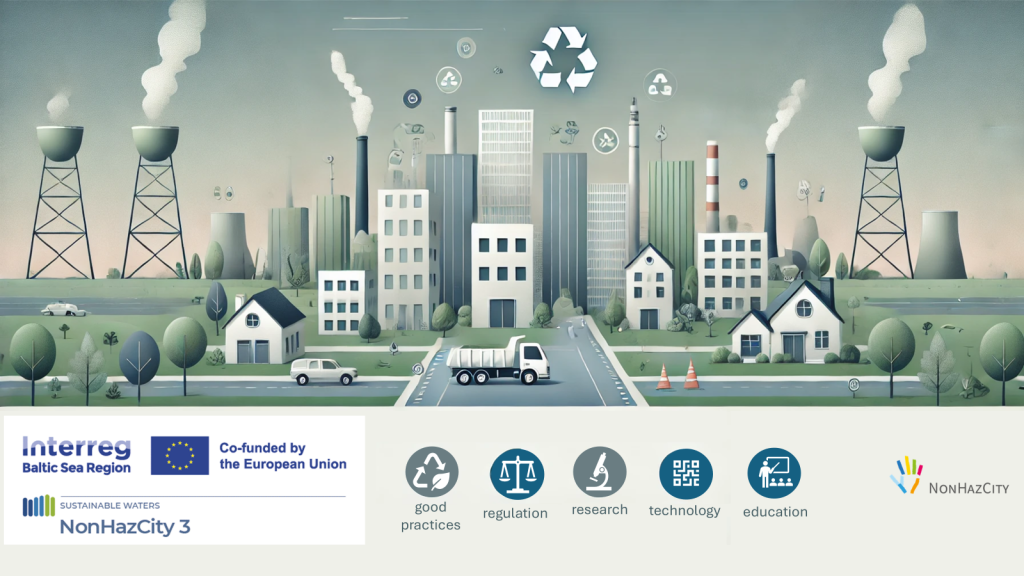Advancing Chemical Safety, Climate Neutrality, and Circularity in Construction Sector with NonHazCity3 Project

The construction industry is a major contributor to national GDP in the Baltic Region, but at the same time it contributes to environmental degradation due to hazardous chemicals, carbon emissions, and excessive waste. Previous studies indicate that indoor air pollution, caused by chemicals in building materials, is a significant health risk.
NonHazCity 3 (which is financed through EU Interreg Baltic Sea Region Programme) integrates efforts to reduce these impacts by promoting non-toxic, climate-resilient, and circular practices throughout the building lifecycle, aligning with the goals of the European Green Deal methodology:
- Stakeholder Engagement: Workshops and consultations target municipalities, builders, and residents, focusing on sustainable practices involving non-toxic, low-carbon, and recyclable materials.
- Tools Empowering Change: Therea are different tools designed to help introducing material that are more chemically safe, with lower carbon footprint, and great potential for recyclability. Some of them would be digital, some more classical.
- Pilot Projects: Demonstration buildings show the use of non-toxic, bio-based, and low-carbon materials that can be easily recycled. These pilots align with best practices on sustainable building material use and utilization .
- Policy Advisory: on with local governments helps shape regulations that encourage the use of safer, climate-friendly, and circular construction practices. Policy frameworks are modeled on approaches that emphasize sustainability across building lifecycles.
Challenge of Integrating Chemical Safety, Climate, and Circularity.
Addressing climate change requires more than just switching to renewable energy; it also involves managing the chemical industry, which contributes nearly 6% of global greenhouse gas emissions. Although shifting to CO2-neutral energy can mitigate part of this, a substantial share of emissions stems from chemical production processes. Reducing petrochemical use and adopting a circular economy, where raw materials are reused and recycled, is crucial. However, the contamination of recyclates with harmful substances poses challenges, making it essential to eliminate pollutants to enable effective recycling and achieve climate goals. Additionally, certain chemicals, like F-gases and VOCs, directly exacerbate global warming.
The NonHazCity 3 initiative addresses the interlinked issues of chemical safety, climate resilience, and circular economy principles. Research suggests that using bio-based and recyclable materials can significantly reduce carbon footprints and enhance material recovery. The adoption of safer, non-toxic materials also improves quality of environment and human health, which is indicated in health-focused studies in green building practices.
Invitation
NonHazCity 3 represents an integrated approach to sustainable construction by addressing chemical safety, climate resilience, and circularity. Continued collaboration across sectors, innovation in tools and practices, and effective policy frameworks are key to scaling these efforts throughout the Baltic Region and beyond, ultimately enhancing environmental and public health outcomes. We have already achieved some good results (please view them on the project website: https://interreg-baltic.eu/project/nonhazcity-3/) or on our social media platforms.
Would you like to know, how we could help You in the particular need related to reducing environmental burden of construction industry – please fill in the contact form and we will be back shortly.

